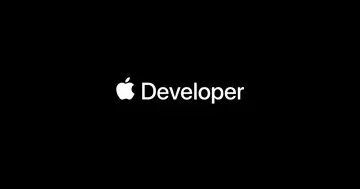iOS Developer Jobs
1. What is an iOS developer?
IOS (previously known as the iPhone Operating System) is a mobile operating system created by Apple Inc. exclusively for its hardware. This is the current operating system provided for most of Apple's mobile devices, including the iPhone, iPad, and MacBook. This is the second most popular mobile operating system worldwide after Android.
The iOS programmer is responsible for developing applications for mobile devices powered by Apple's operating system iOS. A skilled iOS programmer is proficient in one of the two programming languages for this platform: Objective-C or Swift. iOS programmers must also have a deep understanding of the models and practices surrounding the iOS platform.

2. What are the responsibilities of an iOS developer?
An iOS developer will build, test, and optimize applications for mobile devices using Apple's iOS operating system to meet the goals and standards of their company or clients. They need to have an in-depth understanding of iOS and how it works with different Apple devices like the iPhone, iPad, Apple Watch, and Apple TV and be able to customize their applications according to the requirements of their company or clients.
iOS developers commonly use the languages of Swift and Objective-C.
Swift is a general-purpose, compiled programming language released by Apple in 2014. It provides better type safety, security, and performance than Objective-C, according to TechRepublic contributor Cory Bohon. Swift is used to developing for iOS, macOS, watchOS, tvOS, and Linux. Apps built with Swift can run on iOS devices dating from iOS 7 and newer, and Mac devices dating from OS X 10.9 and newer.
Swift can interact with Objective-C, which is an object-oriented programming language (OOP) that adds OOP models to the C language through object messages. Objective-C was Apple's main programming language for iOS before Swift was introduced. Since its introduction in 1984, Objective-C has still accounted for a significant portion of Apple's code base.
3. Essential skills for an iOS developer
In addition to fluency in Swift and Objective-C, those who want to become iOS developers should learn these skills:
-
Spatial geometry: iOS developers must have the ability to think in 3D and visualize the spatial relationships between objects when designing apps for users; this means understanding the types of controls and inputs available on different platforms, as well as who your users are.
-
Design principles: iOS apps must be visually intuitive for users and adhere to strict design principles. Developers need to learn how to create Model-View-Controller (MVC), report, and notification patterns.
-
Networking: As all apps interact with the internet in some way; therefore, iOS developers must know how to send and receive data from the network, which is implemented through JavaScript Object Notation (JSON).
-
Data: This is the framework for storing data on Apple devices - a critical part of most every app.
-
Grand Central Dispatch (GCD): This allows developers to add concurrency to apps, helping multiple tasks run simultaneously without impacting performance.
-
Git and GitHub: These version control platforms help manage versions for longer projects and team projects.
In addition, Aniday also recommends iOS developers learn about the Xcode IDE, Apple frameworks and APIs like Foundation, UIKit and CocoaTouch, UI and UX design, Apple's human interface principles, 2D and 3D graphics frameworks like SpriteKit and SceneKit, OpenGL or Metal, and iOS graphics APIs.
Around 72% of professional developers hold a degree in computer science or another STEM field, according to the 2019 Developer Survey from Stack Overflow. However, degrees are increasingly unnecessary for advancement in the field due to shortages in many areas and the rise of coding boot camps.
Around 87% of developers report self-teaching a new language, framework or tool without a formal course, while 60% said they have taken an online course in programming or software development, like a massive open online course (MOOC).

4. Roles and responsibilities of an iOS Developer
The iOS developer is responsible for building visually appealing and eye-catching apps for mobile devices powered by Apple's operating system. iOS Developers are expected to work in a diverse team including managers, designers, and other iOS developers. Some other job responsibilities of an iOS developer include:
-
Designing and building iOS apps on the iOS platform
-
Working with cross-functional teams to identify, design, and deliver new features.
-
Performing unit testing, including edge cases, usability, and overall reliability.
-
Identifying and fixing bugs
-
Continuously evaluating and implementing new technologies to maximize development efficiency.
-
Helping maintain code quality, organization, and automation
-
Building multi-threaded applications.
5. Aniday summarizes the requirements of the employers for the iOS developer position:
Large employers often recruit iOS developers with more experience, below Aniday will summarize the common requirements for this position:
-
At least x years of iOS development experience, Proficient with Swift and Cacao Touch
-
Experience with iOS frameworks like Core Data, Core Animation, etc.
-
Experience with offline storage, threading, and performance tuning
-
Familiar with RESTful APIs to connect iOS apps to backend services
-
Understanding of Apple's design principles and interface guidelines
-
Understanding of at least one of these architectures: MVP, MVVM, Clean Architecture
-
Experience and understanding of test-driven and unit-testing design is an advantage
-
Basic communication skills in English and intermediate reading and writing skills.
Agile/Scrum experience is an advantage -
Knowledge of design patterns, enterprise architectures, and software engineering principles
-
Good awareness of design, UX, and ability to ensure technical feasibility of UI/UX designs
-
Proven skills in User Interface development/Storyboarding
-
Experience with continuous integration, continuous deployment
-
Experience with Scrum, Agile methods, and tools like Git, Jira
-
Rapid prototyping ideas working with team members for user feedback



